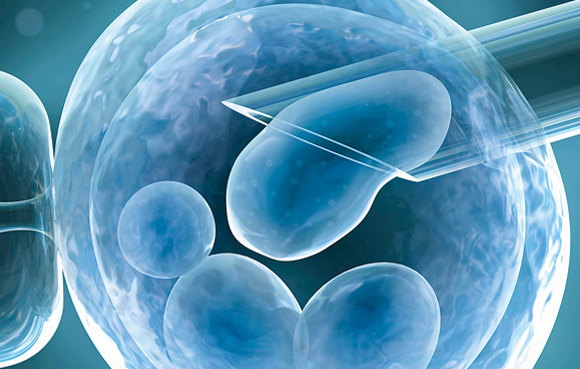News about a baby with DNA from three parents being born in England is raising huge ethical concerns among scientists.
One of the biggest is that two human beings must be destroyed in the experimental new procedure, according to the Anscombe Bioethics Centre in Oxford.
At least one and possibly up to four genetically-modified, three-parent babies have been born in England as a result of the experimental procedure, the Human Fertilisation and Embryology Authority (HFEA), a branch of the British health department, confirmed this month.
The procedure, known as mitochondrial donation treatment, is allowed in England for families with severe inherited mitochondrial illness, according to the health agency. It involves taking DNA from the eggs of two mothers and the sperm from one father to create a human embryo without mitochondrial defects, which are passed on through the mother.
But the treatment also involves destroying two human embryos – unique, irreplaceable human beings at their earliest stage of life, the Anscombe Bioethics Centre said in response to the news.
“It is misleading to call this ‘mitochondrial donation,’ as if mitochondria are being ‘donated’ like organs,” the centre responded. “Indeed, [two human embryos] are functionally destroyed by the removal of their pronuclei, and parts of both used to create a third embryonic human … This is the destruction of two embryonic human individuals to create a third individual.”
Dr. David Albert Jones, director of the centre and a bioethics professor at St. Mary’s University in Twickenham, wished joy to the new baby’s family. But he said society cannot ignore the risks and harms involved in the procedure.
REACH PRO-LIFE PEOPLE WORLDWIDE! Advertise with LifeNews to reach hundreds of thousands of pro-life readers every week. Contact us today.
“This is a new and unnecessary technique that does not add to the safety of IVF [in vitro fertilization] involving an egg donor, but adds further risks,” Jones said. “As with all IVF involving egg or sperm donors, this fractures parenthood and it is essential that the child is at least given identifying information about his or her egg donor parent. It is a fundamental human right to know about our biological origins.”
Jones and other bioethicists also have raised concerns about the future unknowns of tampering with a human being’s DNA and the potential risks involved with passing genetically modified DNA to the individual’s future offspring.
According to the Catholic News Agency, the procedure currently is prohibited in the United States; the U.S. Food and Drug Administration considers it illegal “human subject research.”
In England, the HFEA said experts consider whether to approve the three-parent embryo treatments on an individual basis. It also cautioned that the experiment is still in its “early days.” Therefore, the potential risks largely are unknown.
“These are still early days for mitochondrial donation treatment and the HFEA continues to review clinical and scientific developments,” the agency said. “… We understand that the team at Newcastle hopes to publish information of their mitochondrial treatment programme in peer reviewed journals shortly.”
The agency said 32 families have been approved for the treatment so far through its Statutory Approvals Committee.
The first three-parent baby was born in 2016 in Mexico.








